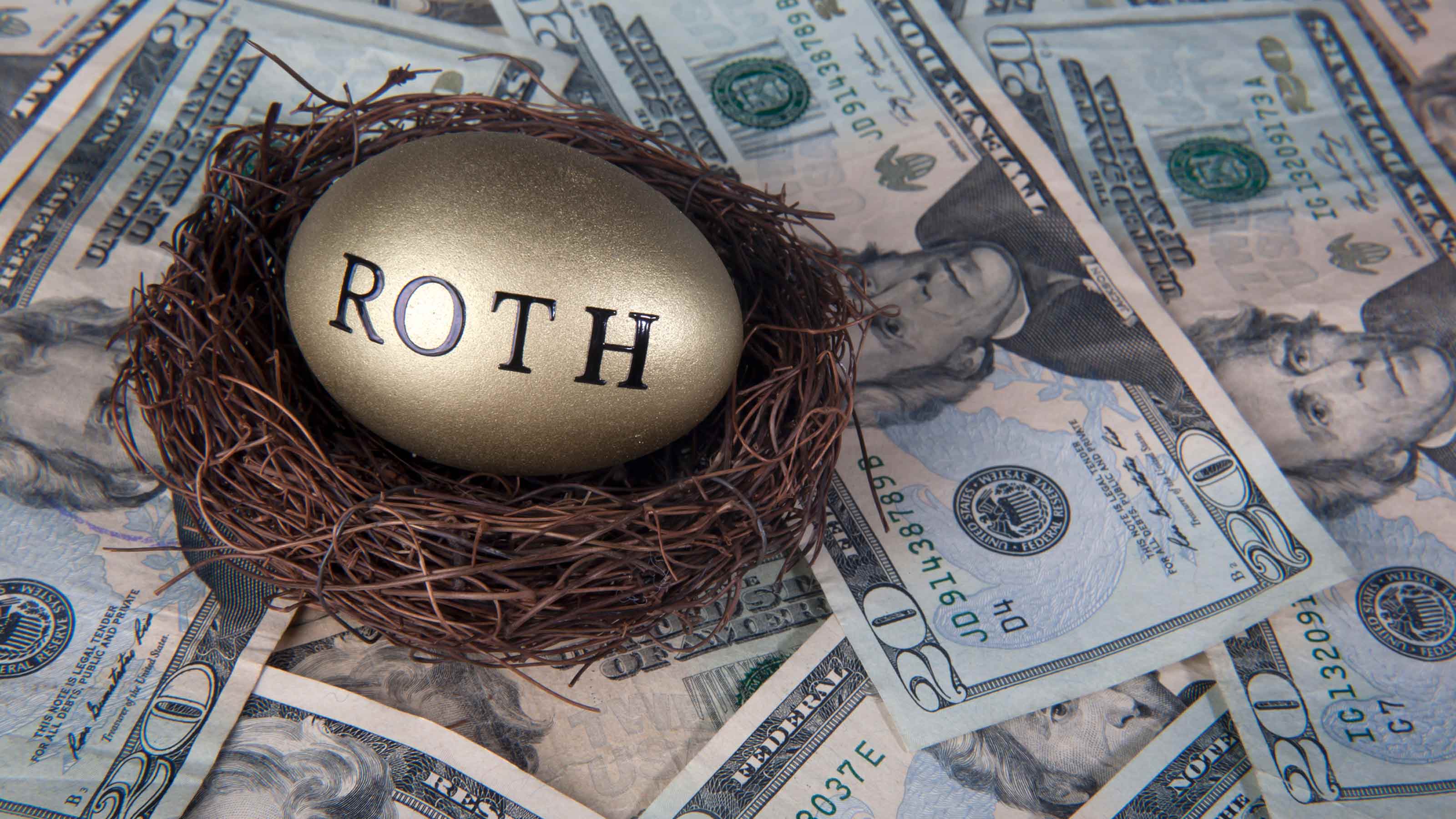Gift Like Buffett: Three Financial Gifts for Kids and Grandkids
Warren Buffett used to give his family cash for Christmas. After learning they neither saved nor invested it, he gave them something more practical.


Profit and prosper with the best of Kiplinger's advice on investing, taxes, retirement, personal finance and much more. Delivered daily. Enter your email in the box and click Sign Me Up.
You are now subscribed
Your newsletter sign-up was successful
Want to add more newsletters?

Delivered daily
Kiplinger Today
Profit and prosper with the best of Kiplinger's advice on investing, taxes, retirement, personal finance and much more delivered daily. Smart money moves start here.

Sent five days a week
Kiplinger A Step Ahead
Get practical help to make better financial decisions in your everyday life, from spending to savings on top deals.

Delivered daily
Kiplinger Closing Bell
Get today's biggest financial and investing headlines delivered to your inbox every day the U.S. stock market is open.

Sent twice a week
Kiplinger Adviser Intel
Financial pros across the country share best practices and fresh tactics to preserve and grow your wealth.

Delivered weekly
Kiplinger Tax Tips
Trim your federal and state tax bills with practical tax-planning and tax-cutting strategies.

Sent twice a week
Kiplinger Retirement Tips
Your twice-a-week guide to planning and enjoying a financially secure and richly rewarding retirement

Sent bimonthly.
Kiplinger Adviser Angle
Insights for advisers, wealth managers and other financial professionals.

Sent twice a week
Kiplinger Investing Weekly
Your twice-a-week roundup of promising stocks, funds, companies and industries you should consider, ones you should avoid, and why.

Sent weekly for six weeks
Kiplinger Invest for Retirement
Your step-by-step six-part series on how to invest for retirement, from devising a successful strategy to exactly which investments to choose.
What does Warren Buffett give his family for Christmas? Not so fast — you’ll have to endure some important background information to understand the full wisdom of his gifts. Mary Buffett, Warren’s former daughter-in-law, shared what Christmas was like with the Oracle of Omaha. She revealed in a 2019 interview that “He (Buffett) would always give each of us $10,000 in hundred-dollar bills.” And she admitted that "as soon as we got home, we'd spend it — whooo!” That didn’t go over well with a man whose number one rule is “never lose money.”
She continued, “Then, one Christmas, there was an envelope with a letter from him. Instead of cash, he'd given us $10,000 worth of shares in a company he'd recently bought, a trust Coca-Cola had.” Mary Buffett wasn’t disappointed in the least. In his letter, he said to either cash them in or keep them.” Mary Buffett wisely chose to keep the stock and bought more shares.
I think when Warren Buffett does something, it's worth taking notice. His decision to give financial gifts that couldn't be readily squandered should give us all cause to rethink cash gifts. When there is a milestone, such as a wedding or graduation, you can give your family the gift of a legacy and build familial wealth and financial well-being for generations to come. I spoke with Jaime Eckels, CFP and Wealth Management Partner with Plante Moran Financial Advisors, about the best financial gifts for your kids and grandchildren this holiday season.
From just $107.88 $24.99 for Kiplinger Personal Finance
Become a smarter, better informed investor. Subscribe from just $107.88 $24.99, plus get up to 4 Special Issues

Sign up for Kiplinger’s Free Newsletters
Profit and prosper with the best of expert advice on investing, taxes, retirement, personal finance and more - straight to your e-mail.
Profit and prosper with the best of expert advice - straight to your e-mail.
What's a better gift for your loved ones than the chance to build wealth? Here are three different gifts that can give your family a financial head start:

1. A professional financial check-up
Financial literacy in America is lacking. One measure of personal finance knowledge is the P-Fin Index, which is shorthand for The TIAA Institute-GFLEC Personal Finance Index. This index explores eight functional areas across finance, such as earnings, savings, insuring and comprehending risk.
Too many Americans get a failing grade. The 2024 P-Fin Index reveals that, on average, U.S. adults correctly answered only 48% of the 28 index questions. Even more alarming, all generations are seriously lagging in their "comprehending risk." On average, only 35% of these questions are answered correctly.
A session with a financial adviser can help people properly prioritize their financial goals, according to Ms. Eckels. Whether they are starting to save or inching toward retirement, a financial check-up can bring clients a new perspective and clarity. A professional can help your family members get on a path to make choices that will get them closer to their goals, such as buying a home or meeting retirement savings objectives.
Wealth management firms offer a variety of services, from creating detailed savings plans over decades to advice on buying a home or ways to invest an expected inheritance. Getting a one-time financial plan, an insurance review, or a 401(k) allocation check are other ways your family members could use a meeting with a financial professional.

2. Match Roth contributions
Ms. Eckels emphasized that gifts can be more than an "opportunity to give stuff." Consider introducing the concept of long-term saving to the younger members of your family by offering to match contributions to a Roth IRA. The offer of a match may encourage the tweens and teens in your life to forgo another trip to Sephora or delivery from Amazon in favor of a deposit into a Roth IRA.
Recent college graduates will appreciate the opportunity to save more for the future as they try to pay down student loans and meet monthly living expenses. Your offer to match their contributions can be more memorable if you demonstrate how much money they can earn through the power of compounding growth.
For instance, a one-time contribution of $7,000 in a Roth IRA — with no additional contributions at all — would grow to about $139,550 in 50 years (assuming a 6% investment return and monthly compounding), according to NerdWallet.
The biggest obstacle to opening a Roth IRA for a minor is having earned income, not age. The IRS defines earned income as taxable income and wages or money earned from a W-2 job or self-employment gigs. That can even include babysitting, dog walking, or raking leaves.
You can open a custodial Roth IRA for your minor grandchildren. The retirement account would be owned by the minor but controlled and funded by an adult custodian until the minor comes of age.
Remember, if you want to contribute to your child's Roth IRA or match your child's contributions, that's fine as long as they have at least as much earned income as the total contribution amount.
Keep in mind that money that you contribute to the Roth IRA can count as a gift within your yearly gift tax exclusion is $19,000 for 2025.
“Rule No. 1 is never lose money. Rule No. 2 is never forget Rule No. 1.”
Warren Buffett

3. Appreciated stock
If you’re thinking about your legacy, gifting stocks can be a valuable tool. Few gifts have the potential to be worth more tomorrow than it is today. That is one of the unique upsides to giving the gift of stock. And gifting stock is easier than you think; you can gift stock to kids through a custodial account, and you can gift stock to adults with a simple transfer. And this type of gift may offer a few tax and estate planning perks for you.
Gifting stock instead of cash can be a great way to help younger investors with their savings and investing goals. To gift stock to a minor, you can open a custodial account, called an UGMA or UTMA. This allows you gift securities to a person who is underaged without giving the child authority to sell the shares until they reaches the age of majority. In the case of an adult, your adviser or brokerage firm can transfer ownership of the actual shares to your recipient.
When gifting to a minor, consider that the funds in the account are considered the child’s assets and must be included on the FAFSA (Free Application for Federal Student Aid), which may reduce the amount of financial aid they receive. There is also the Kiddie tax that will apply to unearned income, such as dividends, that exceeds $2,500, and is taxed at the parent’s tax rate unless the child’s rate is higher.
Ms. Eckels, of Plante Moran, highlighted the potential tax and estate planning benefits of gifting appreciated stock. By gifting appreciated stock, you transfer the gains to the recipient and avoid having to sell the stock and pay capital gains tax.
Cultivate long-term thinking
Buffett is a long-term investor who believes it is more important to focus on the future potential of a company rather than its short-term performance. This is a philosophy we mere mortals can apply to our investments because there are no shortcuts to building a solid financial foundation. Unless, of course, your father-in-law is one of the most successful investors in American history.
Related Content
Profit and prosper with the best of Kiplinger's advice on investing, taxes, retirement, personal finance and much more. Delivered daily. Enter your email in the box and click Sign Me Up.

Donna joined Kiplinger as a personal finance writer in 2023. She spent more than a decade as the contributing editor of J.K.Lasser's Your Income Tax Guide and edited state specific legal treatises at ALM Media. She has shared her expertise as a guest on Bloomberg, CNN, Fox, NPR, CNBC and many other media outlets around the nation. She is a graduate of Brooklyn Law School and the University at Buffalo.
-
 Quiz: Do You Know How to Avoid the "Medigap Trap?"
Quiz: Do You Know How to Avoid the "Medigap Trap?"Quiz Test your basic knowledge of the "Medigap Trap" in our quick quiz.
-
 5 Top Tax-Efficient Mutual Funds for Smarter Investing
5 Top Tax-Efficient Mutual Funds for Smarter InvestingMutual funds are many things, but "tax-friendly" usually isn't one of them. These are the exceptions.
-
 AI Sparks Existential Crisis for Software Stocks
AI Sparks Existential Crisis for Software StocksThe Kiplinger Letter Fears that SaaS subscription software could be rendered obsolete by artificial intelligence make investors jittery.
-
 We Retired at 62 With $6.1 Million. My Wife Wants to Make Large Donations, but I Want to Travel and Buy a Lake House.
We Retired at 62 With $6.1 Million. My Wife Wants to Make Large Donations, but I Want to Travel and Buy a Lake House.We are 62 and finally retired after decades of hard work. I see the lakehouse as an investment in our happiness.
-
 Social Security Break-Even Math Is Helpful, But Don't Let It Dictate When You'll File
Social Security Break-Even Math Is Helpful, But Don't Let It Dictate When You'll FileYour Social Security break-even age tells you how long you'd need to live for delaying to pay off, but shouldn't be the sole basis for deciding when to claim.
-
 I'm a Wealth Adviser Obsessed With Mahjong: Here Are 8 Ways It Can Teach Us How to Manage Our Money
I'm a Wealth Adviser Obsessed With Mahjong: Here Are 8 Ways It Can Teach Us How to Manage Our MoneyThis increasingly popular Chinese game can teach us not only how to help manage our money but also how important it is to connect with other people.
-
 Global Uncertainty Has Investors Running Scared: This Is How Advisers Can Reassure Them
Global Uncertainty Has Investors Running Scared: This Is How Advisers Can Reassure ThemHow can advisers reassure clients nervous about their plans in an increasingly complex and rapidly changing world? This conversational framework provides the key.
-
 Should You Jump on the Roth Conversion Bandwagon? A Financial Adviser Weighs In
Should You Jump on the Roth Conversion Bandwagon? A Financial Adviser Weighs InRoth conversions are all the rage, but what works well for one household can cause financial strain for another. This is what you should consider before moving ahead.
-
 The 8 Stages of Retirement: An Expert Guide to Confidence, Flexibility and Fulfillment, From a Financial Planner
The 8 Stages of Retirement: An Expert Guide to Confidence, Flexibility and Fulfillment, From a Financial PlannerRetirement planning is less about hitting a "magic number" and more about an intentional journey — from understanding your relationship with money to preparing for your final legacy.
-
 5 Mistakes to Avoid in the 5 Years Before You Retire, From a Financial Planner
5 Mistakes to Avoid in the 5 Years Before You Retire, From a Financial PlannerWhen retirement is in reach, financial planning gets serious — and there's a heightened risk of making serious mistakes, too. Here are five common slipups.
-
 I'm a Financial Planner: This Retirement Strategy Helps Plot a Stress-Free Path to Cash Flow
I'm a Financial Planner: This Retirement Strategy Helps Plot a Stress-Free Path to Cash FlowDividing funds into a safety bucket, an income bucket and a growth bucket can help to cover immediate expenses, manage cash flow and promote growth.